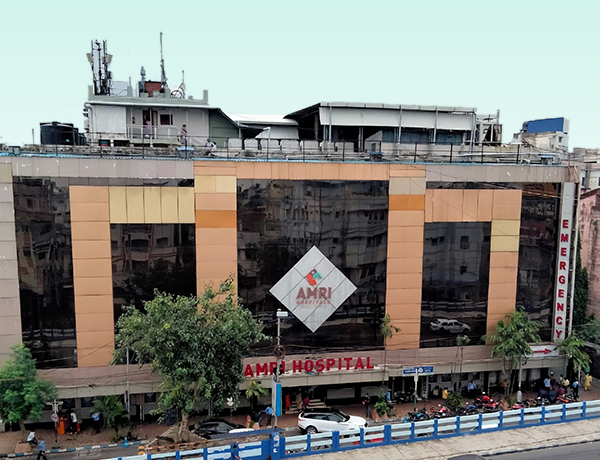Dermatopathology
Dermatopathologists are doctors who use microscopes to look at samples of skin, hair, and nails to diagnose diseases. Their specialty, dermatopathology, is a combination of “dermatology,” the study of the skin, and “pathology,” the study of disease. For every medical specialty, there is a pathologist working in the field, helping diagnose diseases and give input on patient care. In the field of dermatology, this is the dermatopathologist.
Who Needs Dermatopathology
Dermatopathology is essential for individuals who:
- Have Skin Disorders: People with skin conditions, including rashes, moles, cysts, or unusual growths, may require dermatopathology to determine the nature of the condition.
- Suspect Skin Cancer: Individuals concerned about skin cancer or who have received abnormal results from skin screenings or biopsies benefit from dermatopathological evaluation.
- Need Second Opinions: Patients seeking a second opinion regarding their skin condition, especially when initial diagnoses are inconclusive or unclear.
When to See a Specialist
If you have a skin condition that requires a biopsy or if you’re concerned about the accuracy of a previous skin diagnosis, it’s advisable to consult a dermatopathologist. Your primary care physician or dermatologist can refer you to a specialist if necessary.
Procedure
- Skin Biopsy: A dermatologist or healthcare provider performs a skin biopsy by removing a small sample of skin tissue or a lesion. This sample is sent to a dermatopathology laboratory for evaluation.
- Laboratory Processing: In the lab, the tissue sample undergoes specialized processing, including fixation, embedding, and sectioning. These steps prepare the tissue for microscopic examination.
- Microscopic Examination: A dermatopathologist examines the tissue sections under a microscope. They look for cellular abnormalities, inflammation, pigmentation, and other characteristics to make a precise diagnosis.
- Diagnosis: Based on the microscopic findings, the dermatopathologist provides a detailed diagnosis, which is often shared with the referring healthcare provider.
- Report: A comprehensive report is generated, detailing the diagnosis and any additional information relevant to the patient’s condition. This report guides treatment decisions.
Road To Recovery
Dermatopathology procedures themselves do not require recovery, as they involve the examination of existing tissue samples. The road to recovery is determined by the underlying skin condition or disease and the treatment prescribed by the referring healthcare provider.
Risk Management
Dermatopathology is a low-risk diagnostic procedure. Risks associated with skin biopsies, such as infection or scarring, are minimal when performed by trained professionals. Careful handling and processing of tissue samples in the laboratory also minimize risks.
Benefits of Dermatopathology
- Accurate Diagnosis: Dermatopathologists provide precise diagnoses, enabling appropriate and timely treatment.
- Treatment Guidance: The information derived from dermatopathology guides healthcare providers in selecting the most effective treatment options for skin conditions.
- Early Detection: Dermatopathology plays a crucial role in the early detection of skin cancers, facilitating prompt intervention and improved outcomes.
Frequently Asked Questions
Do I need a referral to see a dermatopathologist?
In many cases, a referral from a primary care physician or dermatologist is necessary to see a dermatopathologist.
How long does it take to receive dermatopathology results?
The turnaround time for results varies, but most reports are available within a few days to a week after the biopsy.
Can dermatopathology diagnose all skin conditions?
Dermatopathology is highly effective in diagnosing a wide range of skin conditions, but some conditions may require additional testing or imaging for a comprehensive diagnosis.
Is dermatopathology only for skin cancer diagnosis?
No, dermatopathology is used to diagnose various skin conditions, including infections, autoimmune disorders, and benign growths, in addition to skin cancer.
Are skin biopsies painful?
Skin biopsies are typically well-tolerated and involve minimal discomfort. Local anesthesia may be used to numb the area before the procedure.
Treatians As The Best Choice
Treatians understand that seeking medical treatment abroad can be a daunting experience for patients and their families. That’s why the company offers end-to-end support to its clients, from the initial consultation to post-treatment care. The company provides personalized treatment plans that are tailored to meet the individual needs of each patient, and its team of dedicated professionals is always on hand to provide guidance and support throughout the entire process. Contact us at +91-7982312582, drop your email [email protected]
- Trauma & intensive care
- Aged Care
- Community Services
- Diagnosis & Investigation
- Medical & Surgical
- Mental Health
- Rehabitation
- Specialised Support Service
Service Recipient Says

Oxmox advised her not to do so, because there were thousands of bad Commas, wild Question Marks and devious.
Kolis Muller NY Citizen
Oxmox advised her not to do so, because there were thousands of bad Commas, wild Question Marks and devious.
Kolis Muller NY Citizen




















Oxmox advised her not to do so, because there were thousands of bad Commas, wild Question Marks and devious.
Kolis Muller NY Citizen